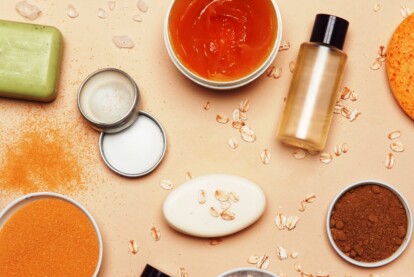The timeline of the Animal Rights movement: part two


Finding truly ethical skincare products can be something of a minefield.
– Are all of the ingredients in a product actually organic?
– Have ingredients been tested on non-human animals?
– Does the company sell in markets that require non-human animal testing on cosmetics?
– Are workers being paid a fair wage?
– Is an ingredient sustainable?
– Is the packaging bad for the environment?
These questions can be surprisingly hard to answer!
In today’s blog, we’re going to take a look at some of the ethical issues faced by the skincare industry. We’ll also link to some resources to help you find ethical skincare products and cosmetics that you can use with confidence.
What is it that makes a skincare product ethical?
It’s our belief that to be ethical, a skincare brand must be transparent about the ingredients used in its products and how they’re sourced, as well as all aspects of the manufacturing and distribution process.
Ethical skincare brands aren’t harmful to humans, other animals or the environment.
This means:
– Using ingredients that haven’t been tested on or derived from non-human animals
– Paying workers in the supply chain a fair living wage and protecting their health and safety
– Doing everything possible to ensure sustainability and a low carbon footprint
– Not harming or exploiting any life on the planet for any aspect of the business
People often talk about natural skincare products as though they are automatically ethical. But it isn’t always clear cut.
Many natural ingredients, when grown and harvested in large quantities to be used for skincare or food, can be devastating for the environment.
Palm oil is a perfect example of this.
Although palm oil itself is safe and natural, palm plants are most often grown on large plantations where vast swathes of rainforest have been cut down and thousands of species displaced and pushed to the brink of extinction to make room for them.
This widely used ingredient is linked to climate change, soil erosion, air and water pollution, habitat loss and more.
The WWF explains more about what makes palm oil so damaging to the environment.
This is just one ingredient that, while natural, isn’t automatically ethical.
And this is what makes it so hard for ethically-minded consumers to know which skincare products to choose.
There are few official regulations about what makes something natural, ethical, sustainable or even organic. Words like bio or eco-friendly are widely used but with little real meaning.
As a result, businesses are often accused of “greenwashing” their credentials, i.e. trying to seem more environmentally friendly than they actually are.
So, how do you know what you’re buying?
If you don’t yet have a favourite ethical skincare brand, then you might want to ask the following questions before you next make a purchase:
To be certified as organic by the Soil Association, organic skincare products should contain no genetically modified (GM) ingredients; no controversial chemicals; no parabens or phthalates (see more about these below); no synthetic colours, dyes or fragrances; and no plastic micro-particles.
The products should also use certified sustainable palm oil ingredients, have recycled and recyclable packaging where possible and not have been tested on non-human animals.
They can, however, still use ingredients derived from non-human animals.
Currently, the use of the word “organic” is unregulated for health and beauty products, so skincare brands sometimes describe their products as organic when only a percentage of the ingredients have been grown organically.
Most skincare experts recommend looking for products that carry the Soil Association’s organic symbol. This should ensure that the organic credentials have been independently checked and that at least 95% of the agricultural ingredients in a product were grown using organic methods.
Other organic certifications have different criteria.
You can read more about the main organic beauty certifications here:
Soil Association’s Health & Beauty Standards
Soil Association & COSMOS Natural
Vegan skincare products don’t contain non-human animal-derived ingredients or use them in the production process. This is important as ingredients such as honey, beeswax, silk, collagen and lanolin are widely used in health and beauty products.
Currently, not all vegan certifications are equal, so you may need to dig a bit deeper when you see a skincare product being marketed as “vegan”.
Most people agree that the gold standard vegan certification is the Vegan Trademark from The Vegan Society.
This trademark is the most recognised vegan symbol globally and confirms that the product uses no animal-derived ingredients, including during manufacturing, and has not involved animal testing at any stage, both of the individual ingredients and the finished product.
Although the testing of cosmetics on non-human animals is banned in the EU or UK, it’s still common practice in many other parts of the world.
As an ethical consumer, you’ll want to look for skincare brands that don’t sell products or use ingredients that have been tested on our animal kin.
It’s worth checking too whether your favourite brand sells to markets such as China where animal testing is required by law for most cosmetic products. Unfortunately, some skincare brands have returned to animal testing in order to reach this market.
Because there are so few regulations around how skincare products are labelled, brands that claim their products are “cruelty-free” or “not tested on animals” aren’t always to be trusted. These claims often relate to the finished product with testing still taking place on individual ingredients.
Also, products may claim to be cruelty-free but still contain ingredients derived from non-human animals who have been exploited and, in most cases, slaughtered. This isn’t cruelty-free.
The only way to be 100% certain that a skincare brand is cruelty-free is to choose one that has been certified by Cruelty-Free International’s Leaping Bunny Program and carries the Leaping Bunny symbol.
This program carries out rigorous checks to ensure that no new testing of non-human animals has taken place at any stage of the product development by the company, its laboratories or its ingredient suppliers.
You can find out more about the Leaping Bunny Program here.
PETA also has a cruelty-free database of companies that don’t test on non-human animals.
Palm oil is used in many everyday products ranging from shampoo, toothpaste and detergent to chocolate, snacks, bread or fuel.
As we’ve already mentioned above, it presents huge ethical problems due to being closely linked to deforestation, loss of habitat, endangering numerous species, and serious human rights violations.
Organisations such as Greenpeace argue that even certified sustainable palm oil (CSPO), as determined by the Roundtable on Sustainable Palm Oil (RSPO), is problematic. A Greenpeace investigation exposed that RSPO members are still destroying forests and have been linked to a number of major forest fires in Indonesia.
Greenpeace also highlights that companies can’t always trace palm oil to its origins and that skincare ingredients are sometimes made from a process that uses palm oil, which doesn’t have to be listed on the end product.
There are a number of other sustainable palm oil or palm oil-free certifications but the criteria for these vary.
The Rainforest Alliance, for example, works with companies to trace their palm oil supply chains back to mills, as “an essential step in implementing a deforestation-free policy”.
Perhaps the only truly ethical choice is to choose palm oil-free skincare products. Eluxe Magazine published a helpful guide to finding palm oil-free beauty brands, which you may find helpful.
Microbeads are minuscule particles of plastic, barely visible to the naked eye. Unfortunately, they soak up toxic chemicals like a sponge.
They’re commonly used as an exfoliator in personal care products such as cleansers, body scrubs, shower gels and toothpaste.
Sadly, microbeads are too small to be filtered out by our sewer systems. This means they flow down our drains to eventually find their way into the oceans where they are ingested by marine life. In turn, any species that eat marine life ends up ingesting the microbeads too and so plastic pollutes the food chain.
In 2017, the UK government banned the use of microbeads in rinse-off skincare products such as toothpaste and shower gel. However, microbeads are still permitted in leave-on products include make-up and sunscreen.
Other parts of the world have similar bans, while some still widely use microbeads.
The next time you read the label on a skincare product, look for ingredients such as Polypropylene, Polyethylene, Terephthalate or Polymethyl methacrylate as these are all plastic derivatives that should be avoided.
You can find out more about the global health crisis caused by plastic pollution at: https://www.5gyres.org/
One of the most powerful ways we can help the environment is to stop buying products that contain microplastics.
Many skincare products contain chemicals that research shows to be bad for health and the environment.
In particular, parabens, phthalates, tricolsan and triclocarban have all been linked to hormone disruption leading to early puberty, some hormone-related cancers, infertility, thyroid problems and much more.
The same chemicals are highly toxic to marine life and have been shown to have long-term adverse effects in an aquatic environment. As with microbeads, these chemicals end up in the food chain, affecting many different animal species, including humans.
While some skincare products are advertised as “chemical-free”, you can’t take this at face value. In reality, very few – if any – skincare and cosmetic products are completely free from chemicals (after all, even water is a chemical!).
The question you need to ask is, “What chemicals are being used and are they harmful?”
Experts recommend looking for skincare products that are paraben-free, organic and carry the Soil Association’s Organic or Cosmos Natural logos.
We’ve found some guides to reading and understanding skincare ingredients that you might find helpful:
How to read a skincare ingredient list (even if you hate science) from Beautiful with Brains
The Dirty Dozen: Top 12 ingredients to avoid in your skincare
The beauty industry produces 120 billion units of packaging per year. A staggering 95% of that packaging is thrown out after one use and just 14% makes it to a recycling centre. Overall, 79% of the world’s plastic waste ends up in landfills where it will last forever but leach toxic chemicals into the environment.
A growing number of ethically-minded skincare brands are exploring alternatives to plastic packaging such as glass and aluminium. They’re also working on a “closed-loop circular solution” where packaging materials can be recycled time and again.
Before buying a skincare product, check the packaging to see if it can be reused or recycled. Some brands will publish their ethical standards on their websites.
You can find some ethical ratings and information about many of the larger skincare brands through the Good Shopping Guide to Ethical Beauty.
(As well as covering issues such as sustainability, this also looks at things like political donations, armaments, public records and more.)
After reading all of the above, you may be feeling overwhelmed about how to find truly ethical skincare products.
If palm oil-free products can still be tested on non-human animals or organic products aren’t necessarily vegan, for example, then how do you know what to choose?
Or what if a brand is cruelty-free but still donates to political organisations that work in opposition to your values?
Do you have to sacrifice one principle for another?
Fortunately, a growing number of brands – especially small businesses – are creating skincare products that are vegan, non-toxic, cruelty-free, sustainable and socially responsible.
Hopefully, this article has given you some starting points to help you find them.
There are some fantastic ethical skincare brands (all vegan) listed here in the Ethical Globe directory.
Do you run or know of an ethical skincare brand that addresses the issues we’ve talked about in this article? Yes?! Then we’d love to add this business to our directory too.